#bessarabia
Text


Jewish farmers in Bessarabia (Moldova and southern Ukraine), 1910s - 1920s
252 notes
·
View notes
Text
We, From Bessarabia - Meyer Kharats - Moldova
Translator: Sebastian Schulman (Yiddish)
We, who we ride out at dawn every day,
all our possessions in wagons of hay.
Carrying our bread in dusty old sacks,
salted snacks in our mouths, joy on our backs.
We, from Mărculești, Zgurița, Lipcani,
Bălți, Soroca, Fălești, and Briceni.
We, from Ungheni, Sculeni, and Rîșcani.
We, the Banars, Sepunars, the Baltsans…
We, who we don’t even know when or where
how we took on the strange names that we bear.
Maybe they’ve always come from right here—
From the town of Briceva or the fields very near?
We, who we look just like one another
in our places of work, in our sisters and brothers,
in our faults, in our talents, in bad and in good,
in porches, in basements, in homes made of wood.
We, who we’ve cracked the whips on their hides,
fed the sheep, shoed a horse before a ride.
Cows we have milked, their calves we have raised,
cleaned their filthy stalls in honor and praise.
We, who we sow, who we harvest and reap,
saddled the horses, and sheared from the sheep,
adopted the ways of Moldavian folk,
summertime we wear a wool hat and a cloak.
Free from the whims of the cities and towns,
far from Vilna and its rabbi’s renown.
We are not sinners, we are not saints,
our piety—modest, our trespasses—quaint.
After our meals, we drink red and white
and after drinking, we take one more bite.
If punishment waits after death at the end
the whips will fray on our backs as we bend.
We, Bessarabians, say it out loud:
we are not cowards, we are not proud.
Jews plain and simple, just off to the side.
Away from the others, our time we shall bide…
#We from Bessarabia#Meyer Kharats#Moldova#Bessarabia#translation: Yiddish#poem#poetry#poems from around the world
5 notes
·
View notes
Photo

Bagel vendor, Bessarabia, 1870-1880s
84 notes
·
View notes
Text
youtube
Folksong from Bessarabia
2 notes
·
View notes
Text
This is Tetiana Stanieva. She is a Bessarabian Bulgarian from the village of Krinychne (Chushmelii) Odesa Region, Ukraine and is wearing a festive costume from that village.
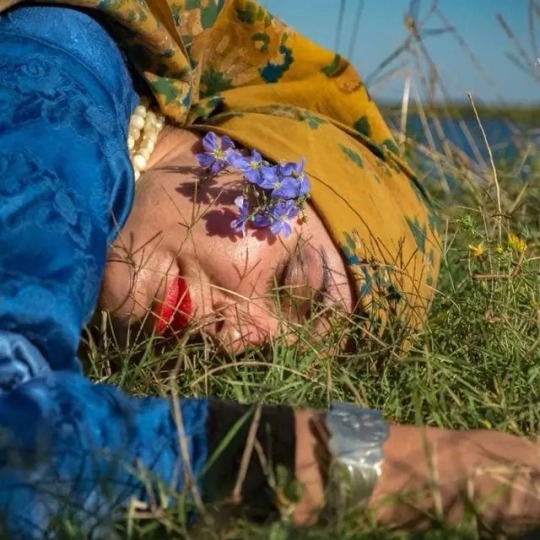
#bulgaria#traditional clothing#bulgarian#balkans#balkan folklore#slavic people#slavic#slavic folk magic#bulgarian folklore#balkan fashion#folkore#ukraina#odesa#odesa ukraine#bessarabia
4 notes
·
View notes
Text

Halutzim, members of Hachshara group, cutting wood.
Falesti, Bessarabia, Romania, April, 24, 1936.
(The Oster Visual Documentation Center, Beit Hatfutsot,
bequest of the late David Vinitzki, Israel)
https://dbs.anumuseum.org.il/skn/en/c6/e249138/Photos/Halutzim_Cutting_Wood_Falesti_Bessarabia_Romania_1
2 notes
·
View notes
Text
Kishinev pogrom
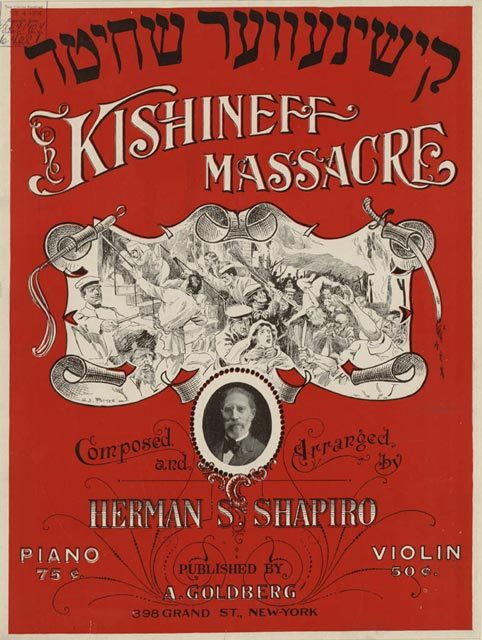
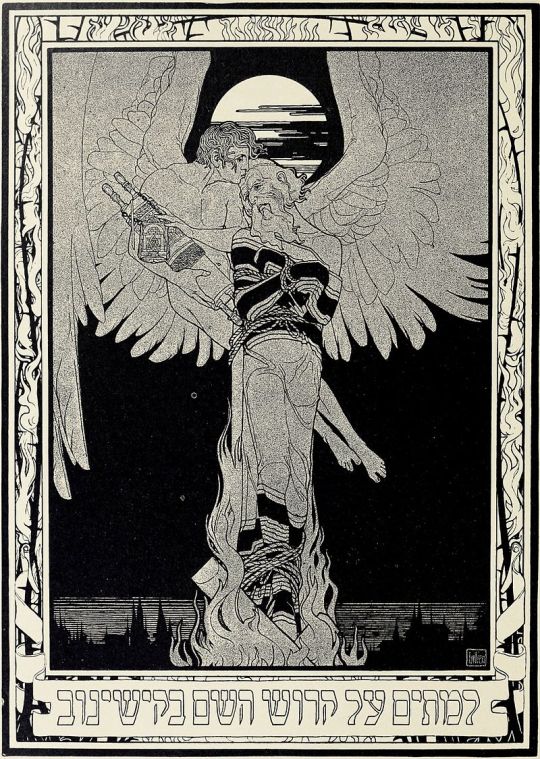

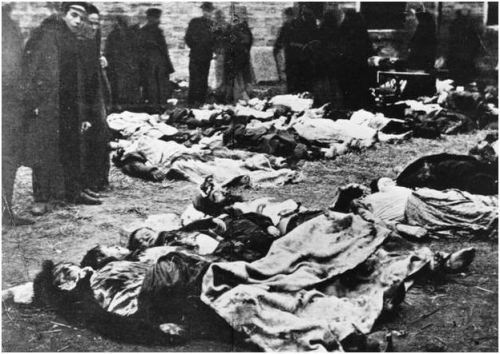

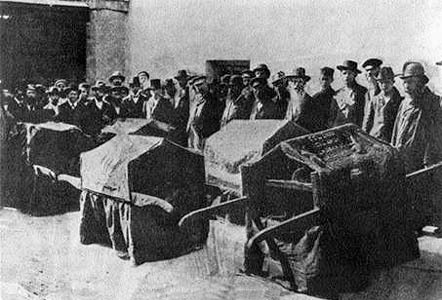
1903 –キシネフ(ベッサラビア)でキシネフポグロム
ポグロムは 4 月 19 日に復活祭の日曜日に会衆が教会の礼拝から解雇された後に始まった。2 日間の暴動で、47 人 (49 人という数字もある) のユダヤ人が殺され、92 人が重傷を負い、500人が軽傷を負い、700軒の家屋が破壊され、600軒の店が略奪された
0 notes
Text
Honestly the next time someone asks "don't you mean Serbia" when i say Bessarabia I'm gonna implode like shut up shut up shut upppp
1 note
·
View note
Text

Jewish man from Bessarabia, ca. 1922
91 notes
·
View notes
Text
Lil spinner has a hot and sexy mouth for a big dick
Busty Latina Rose Monroe poses with a dildo
colombiana gostosa
black pussy cumming on bbc
GOSTOSA DO BIGOLIVE BRASIL
Teen bbc slow mo cumshot
Amateur ebony teen really wants this new job
Putinha caseira gostosa demais
Le sangra su apretada vagina porque llevaba tiempo sin que la penetren duro a esta delicia latina
Slut teen invites stranger to have sex
#denunciant#window-breaking#uncredulousness#reentrant#aspiration's#thermomotive#Letta#pistillate#epistena#stablemate#taproot#euphonically#gadded#neocriticism#Ready#rimrock#devises#Bessarabia#chicano#tororo-kubu
0 notes
Text
03/27/2024 is World Theatre Day 🎭🌎, Day of the Union of Bessarabia with Romania 🇷🇴, National Joe Day ☕️🇺🇸, National Spanish Paella Day 🇺🇸, Manatee Appreciation Day 🇺🇸

#world theatre day#day of the union of bessarabia with romania#national joe day#national spanish paella day#manatee appreciation day
1 note
·
View note
Text

Russian Bessarabia Governorate
A mix between the Russian empires coat of arms and the Bessarabia Governorates arms
0 notes
Text
the german side of my family were german immigrants in what is now modern day moldova, but back in their time it was called bessarabia and i think that is the sickest country name ever
#it also is crazy to me that there was this huge amount of germans that moved to bessarabia#and then from bessarabia to the midwest. for some fucking reason
1 note
·
View note
Text
Today marks 83 years since the Soviet annexation of Bessarabia from Romania
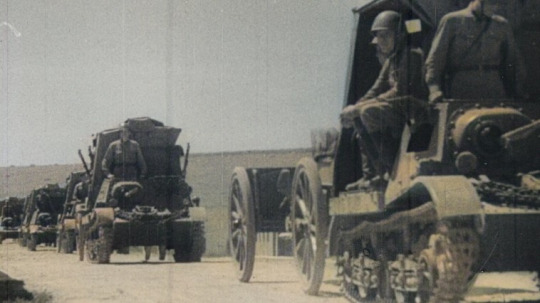
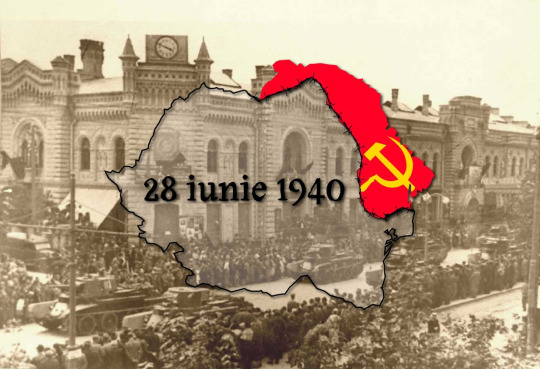
SOURCE - Deschide
Today marks 83 years since one of the darkest chapters in the history of the Romanian nation. On 28 June 1940, the USSR issued an ultimatum to the Kingdom of Romania, following the abduction of Bessarabia, northern Bukovina and Herta Land. Under political pressure dictated by the dirty diplomacy of the great global powers and advised by the 'allies' to accept the Soviet government's conditions, Bucharest ceded the requested territories, a total area of 50,762 km2 with a population of about 4 million inhabitants, mostly ethnic Romanians.
On 26 June 1940, the Government of the Kingdom of Romania received a final note from the representatives of the USSR asking it to cede Bessarabia and Northern Bukovina.
In the interest of "restoring the truth"
In that text, Soviet Foreign Minister Veaceslav Molotov argued that Romania had taken advantage of Russia's military weakness and severed the territory of Bessarabia from the Soviet Union in 1918, "thereby violating the centuries-old unity of Bessarabia, populated mainly by Ukrainians, with the Ukrainian Soviet Republic".
"The Soviet Union has never reconciled itself to the fact of taking Bessarabia by force, which the Soviet government declared not once and openly before the whole world. Now that the military weakness of the USSR is a thing of the past, and the international situation that has arisen requires the rapid resolution of the questions inherited from the past in order to finally lay the foundations of a solid peace between countries, the USSR considers it necessary and opportune, in the interest of restoring the truth, to work with Romania for the immediate resolution of the question of the return of Bessarabia to the Soviet Union," the document added.
The Soviet government asked the Kingdom of Romania to return 'at all costs' the territory of Bessarabia to the Soviet Union and to hand over the northern part of Bukovina to the Soviet Union, with the proviso that it expected a reply no later than 27 June.
Manipulation of history
Historical studies have repeatedly noted that the Soviet last note has no support in reality, for several reasons.
First, Bessarabia never had a Ukrainian majority, nor did it have any "secular unity" with Ukraine. On the contrary, ever since the annexation in 1812 by the Russian Empire, the ethnic majority has always been Romanian. The same was true of Bukovina.
Secondly, Bessarabia declared its independence in 1918 from the Russian Federal Republic. The USSR was created in 1922. So Romania could not 'untie' Bessarabia from the USSR for the simple reason that the Soviet Union did not exist.
If anyone should have been compensated, it was the Kingdom of Romania for 107 years of Russian occupation, not the USSR.
Unfortunately, the Kingdom of Romania was at that time internally collapsed, de facto, so it had no one to respond properly to this mocking final note from the USSR.
The notion of "surrender" was avoided
The Kingdom of Romania conveyed to the Soviet government that "immediate negotiations on a wide range of issues" were necessary, a response that did not please the USSR, which demanded Romania's absolute submission and unconditional acceptance, without negotiation, of the conditions imposed.
As a result, on 27 June, Russia issued a second ultimatum, demanding the evacuation of the Romanian administration and army from Bessarabia and northern Bukovina within four days.
The next day, the Romanian government led by Gheorghe Tătărescu, after receiving advice from Germany and Italy, agreed to submit to Soviet conditions.
The decision to accept the Soviet ultimatum and to carry out a 'withdrawal' (the word 'surrender' was avoided) from Bessarabia and northern Bukovina was taken in the Crown Council on the night of 27-28 June 1940.
The diary of King Charles II records that there were 6 votes in favour of rejecting the ultimatum, 20 votes in favour of accepting it and only one abstention.
The King bowed his head to Russian pressure
On the morning of 28 June, the population was officially informed of the existence of the ultimatum and its acceptance by the Romanian Army's General Staff, in communication no. 25.
According to the terms of the ultimatum, three key cities - Chisinau, Chernivtsi and White Fortress - were to be surrendered to the Soviets by 2 p.m.
By 2 July, the new border along the Prut River was permanently closed.
The Romanian government sought to avoid, if only temporarily, a war with the Soviet Union.
As a result, all military installations were surrendered without being destroyed and without a single shot being fired, the Romanian army having strict orders not to respond to any provocation.
More than 200,000 people of all ethnicities fled to Romania in the few days following 28 June.

Forced ideologisation and deportations
Only a small part of the population of Bessarabia and Bukovina greeted the Soviet annexation with positive feelings.
According to Professor Anton Moraru, PhD in history, the character of the occupation of Bessarabia in 1940 was very clearly and convincingly seen in the policy of the communist regime promoted towards the population of Bessarabia, Northern Bukovina and Herta Land, as archival documents show that the population of these territories rejected the occupation regime.
"The smallest protests were suppressed and suppressed by the Russian NKVD and KGB forces. According to some data, in 1940-1941 alone, the communist occupation regime arrested, ill-treated, fined, sentenced, deported and shot more than 300 thousand people in Bessarabia, Northern Bukovina and Herta Land, including 32 thousand innocent people, who were deported on 12-13 June 1941," Anton Moraru said.
In most of the occupied territory, the Soviets proclaimed the Moldovan SSR, while the southern part of Bessarabia, Bugev, and northern Bukovina were annexed to the Ukrainian SSR.
With the proclamation of the Moldovan SSR, the RASSM, the autonomous "Moldovan" republic east of the Dniester, was divided between the two neighbouring Soviet republics, Soviet Moldova and Ukraine.
The losses suffered in the summer of 1940 affected the geopolitical and strategic role and weight of the Romanian state in the region. But the heaviest blow was a moral one. Only 22 years after the fulfilment of an ideal - a united Romania - Romanians had to resume the struggle for national unity from the beginning.
The annexation of Bessarabia by the Soviets anticipated the establishment of the communist regime in Romania after 1944. Since the ethnic Romanian majority in Bessarabia was made up of peasants, and this class was targeted by the measures of terror, the repression indirectly took on a pronounced anti-Romanian character.





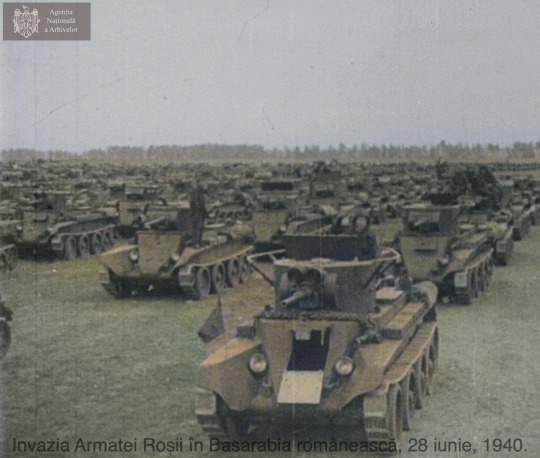
#Romania#Moldova#soviet union#imperialism#ww2#european union#as a descendant of people who endured such horrors#I hope it will be forgiven that I may bring them to light#history#СССР#ussr
44 notes
·
View notes
Text

Romanian women from Bessarabia
#romania#ukrania#i have pretty recent ancestors from the region actually#but thats one of the sides of the family that we dont know that much abt
91 notes
·
View notes
Text
and now, a dramatic and not necessarily historically accurate re-enactment of the unification of the principalities of moldavia and wallachia, as understood by one very stupid australiancă who really should be doing more productive things, îmi pare rău everyone
please correct me wherever necessary, it is the only way i will learn :)
(into the time machine we go)
Negru Vodă: *și-a lui ceată, toți voinici cu fruntea lată*
Me: not that far back
(the 15th to 19th centuries, pretty much)
Moldavia and Wallachia: *get kicked around by the ottomans*
Moldavia and Wallachia: *get kicked around by the Russians*
Moldavia and Wallachia: this is such bullshit
the Crimean War: *occurs*
Moldavia and Wallachia: oh fuck off
(the Treaty of Paris, 1856)
The powers: Well we probably could give you a proper unification, but the broader geopolitical situation, you know.
The powers: So it's back to the Ottomans with you two.
The powers: But the Sultan is going to set up focus groups so you can come up with how you want to run your little principalities and we'll tell you if it's ok.
(the Ad-Hoc Divans, 1857)
(I just like saying "Ad-Hoc Divans")
Moldavian separatists: *steal the election*
Moldavian unionists: Hey!
the Ottomans (pro-separatist): la la, nothing to see here
England and France (pro-unionist, I guess, if they have to): no, do it again
Wallachia: some of us got it right first time
(the Paris Convention, 1858)
The powers: (are they still going on about this? how can we make them go away without destabilising the region, fucking eastern europe we s2g)
The powers: We have read your demands and we all had a good laugh! Here's what we are actually prepared to give you.
The powers: Now why don't you each go and elect a domnitor.
The unionists: *read the convention*
The unionists: *notice a loophole*
The unionists: you know what would be hilarious?
(5/17 ianuarie 1859)
Moldavia: We elect Cuza as our domnitor.
the entire population of Iași: *goes off*
G. Sturdza: dammit that should have been me
the unionists: shouldn't have been a Russian agent then
(24 ian and also 5 feb)
the unionists: oh shit we want Cuza but he doesn't have the support of the conservatives
Wallachian liberals: mobilise the populace!
Wallachian conservatives: vaiiiiiiii this decision is too hard
over 30 thousand people converging on the Assembly:
Wallachia: ...We also elect Cuza as our domnitor.
the entire population of București, probably: *goes off*
(then)
The powers: *19th century diplomatic keysmash*
The powers: You can't do that!
The United Principalities: Show us in this convention where it says the domnitors have to be two different people.
The powers: ...
The powers: All right but you're still not a real country.
Cuza: hold my țuică
(epilog)
Romania: Can we have Bessarabia back now?
Russia: NO
Mihai Eminescu: you will be hearing about this
Eminescu: give me a minute
#hand crafted artisanal shitposting#romanisme#cal explains history#once again i must apologise for the crimes of my ancestral country
11 notes
·
View notes